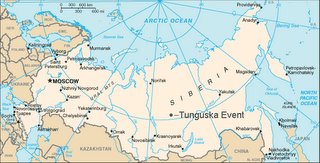
Yep, I'm the ugly duckling in the family. That's ok, I can drink her ass under the table.....Picture taken at Mafioza's on 12th avenue south, after eight too many Jagers...I do love my family to pieces.
“The universal aptitude for ineptitude makes any human accomplishment an incredible miracle.” ―John Stapp

I've got no problem with other people — the ones who were for the Iraq war — supporting the troops. If you think invading Iraq was a good idea, then by all means, support away. Load up on those patriotic magnets and bracelets and other trinkets the Chinese are making money off of.Joel thinks that if we support the troops then this will give the approval to the "hawks" in the administration to keep them there longer. Or perhaps even send them somewhere else where they might be (gasp!) expected to do what our military does extremely well- kill people and break stuff. Now, obviously our military does a whole hell of a lot more than this, as our relief efforts in the Asian tsunami or the Pakistani earthquakes demonstrate, but primarily our military is designed to kill people and break stuff more efficiently and accurately than any other fighting force in the history of our planet. Many people believe, myself include, that the reason our military is as efficient as it is today is because it is a volunteer force. Because the soldiers are there willingly they are more committed to the missions set forth for them than if they were conscripted.
But I'm not for the war. And being against the war and saying you support the troops is one of the wussiest positions the pacifists have ever taken — and they're wussy by definition. It's as if the one lesson they took away from Vietnam wasn't to avoid foreign conflicts with no pressing national interest but to remember to throw a parade afterward.
Blindly lending support to our soldiers, I fear, will keep them overseas longer by giving soft acquiescence to the hawks who sent them there — and who might one day want to send them somewhere else. Trust me, a guy who thought 50.7% was a mandate isn't going to pick up on the subtleties of a parade for just service in an unjust war. He's going to be looking for funnel cake.
But blaming the president is a little too easy. The truth is that people who pull triggers are ultimately responsible, whether they're following orders or not. An army of people making individual moral choices may be inefficient, but an army of people ignoring their morality is horrifying. An army of people ignoring their morality, by the way, is also Jack Abramoff's pet name for the House of Representatives.Inefficiency would be the least of the military's problem if each member made choices according to their own moral agenda. I would be suprised if they could learn how to do anything together. That's the point of an organized militia. They work together towards a common goal, not what each individual persons goal may be.
But when you volunteer for the U.S. military, you pretty much know you're not going to be fending off invasions from Mexico and Canada. So you're willingly signing up to be a fighting tool of American imperialism, for better or worse. Sometimes you get lucky and get to fight ethnic genocide in Kosovo, but other times it's Vietnam."Get Lucky"? My cousin Charlie served for about three years in Bosnia, and I can tell you that at no time did he feel lucky. In fact, he explained to me that he felt very frustrated when the people who lived there explained to him that even though they were happy to see UN and US troops there to stop the fighting, they knew that once they left it would just start all over again.
And sometimes, for reasons I don't understand, you get to just hang out in Germany.
JS: I honor police service. I honor military service. Any...I just think that...So Mr Stein supports the troops as long as they are only fighting people in the United States. Once outside the states he dumps them like used toilet paper. Apparently Mr Stein has a thing for Kosovo though, because he said he would support them then. Personally I don't think that Mr Stein has a fucking clue what he's talking about at all. How a guy this ignorant gets a high paying job writing for a major newspaper like the LA Times should give you an idea of how pathetic the majority of the major media is these days. I mean, someone actually edited this piece and told the print guys to run it. Simply amazing.
HH: You do honor military service?
JS: Yeah. No, I'm grateful for people that serve in the military.
HH: But you don't support our troops?
JS: I don't...I don't believe in supporting the troops in an action that you don't believe in.
HH: And so, that would be everything I've named thus far. So I guess...did you support and honor the troops in the Pentagon on 9/11?
JS: Sure, yeah.
HH: All right.
JS: All the troops that are here to defend our country, I'm very, very grateful for. I'm grateful for the police...
HH: Provided they don't leave the country?
JS: Yeah, provided they don't fight in wars that I think are endangering them for no reason.
HH: And the moment they do, you stop honoring them?
JS: The moment I do, I think it's a poor idea to show support for them and prolong that engagement.
For my part, I support the troops because they are our countrymen and women, they have signed up willingly to serve the nation, and we are in no way, shape, manner, or form figthing a war that is objectively evil or even objectionable from ethical standards that include a resistance to tyranny and a promotion of peace and democracy.
Which is why it is easy for me to look at Stein’s pseudo-philosophical bit of puffed-up provocateurism and call it what it is: the nadir of the me generation, and the ultimate passing of the buck.



Black sergeant was 'loyal Klansman'
By Deborah Bulkeley
Deseret Morning News
About 25 years ago, Ron Stallworth was asked to lead the Ku Klux Klan chapter in Colorado Springs. Stallworth carries his KKK membership card as a memento. Problem was, the outgoing Klan leader didn't know that Stallworth is black. "He asked me to take over the lead because I was a good, loyal Klansman," said Stallworth, who had been in constant phone contact with the Klan leader while leading a yearlong Colorado Springs police investigation into the Klan. Stallworth later moved to Utah, where he recently retired after nearly 20 years as an investigator for the Utah Department of Public Safety. He says he's amazed that no one ever caught on to the investigation he led starting in 1979. After he was offered Klan leadership, he quietly disappeared. As a memento Stallworth still carries his Klan membership card — signed by David Duke."It was one of the most fun" investigations, he said. "Everybody said it couldn't be done." Stallworth communicated with Klan leaders using the telephone. A white officer posing as Stallworth went to the meetings. "The challenge for me was to maintain the conversation flow," Stallworth said. At the same time, Stallworth also led an undercover investigation into the Progressive Labor Party, a communist group that protested at Klan rallies. Stallworth, of Layton, worked 30 years in law enforcement in four states. Stallworth's undercover experience and research led him to become a nationally known expert on gang culture. He calls the Klan investigation "one of the most significant investigations I was ever involved in because of the scope and the magnitude of how it unfolded."

NASA Mission StatementAnd here is NASA's "Vision Statement".
To advance and communicate scientific knowledge and understanding of the earth, the solar system, and the universe.
To advance human exploration, use, and develoment of space.
To research, develop, verify, and transfer advanced aeronautics and space technologies.
NASA Vision NASA is an investment in America's future. As explorers, pioneers, and innovators, we boldly expand frontiers in air and space to inspire and serve America and to benefit the quality of life on Earth.Before I get in to full rant mode, I want to take time to say that every person I have met or corresponded with that is involved with NASA was extremely dedicated and serious about the aforementioned statements. The time and effort it takes to put together a mission like Deep Impact for instance is mind-boggling. Their efforts are truly honorable.
The fact that a catastrophe is very unlikely to occur is not a rational justification for ignoring the risk of its occurrence........A dramatic example of neglect of low-probability/high-cost risks concerns the asteroid menace, which is analytically similar to the menace of tsunamis. NASA, with an annual budget of more than $10 billion, spends only $4 million a year on mapping dangerously close large asteroids, and at that rate may not complete the task for another decade, even though such mapping is the key to an asteroid defense because it may give us years of warning. Deflecting an asteroid from its orbit when it is still millions of miles from the earth is a feasible undertaking. In both cases, slight risks of terrible disasters are largely ignored essentially for political reasons.Keeping in mind the NASA budget numbers again- A $10 billion budget, and only $4 million a year spent on mapping asteroids (never mind mitigating them)- let's now turn to a recent conversation between Planetary scientist Don Yeomans and Alan Boyle, Science editor for MSNBC. During this conversation, Yeomans talks about the efforts of NASA to track Apophis, and also the current responsibilities of NASA in terms of dealing with the mitigation os Apophis-
In part because tsunamis are one of the risks of an asteroid collision, the Indian Ocean disaster has stimulated new intereset in asteroid defense. This is welcome. The fact that a disaster of a particular type has not occurred recently or even within human memory (or even ever) is a bad reason to ignore it. The risk may be slight, but if the consequences should it materialize are great enough, the expected cost of disaster may be sufficient to warrant defensive measures.
"We shouldn't be going hard over and devoting a lot more resources than what we have now, perhaps," he said. "But the modest level of spending that NASA is doing now - about $4 million a year - is probably appropriate, at least for the time being, for the insurance that we get as a result of tracking these objects into the future. We don't get the giggle factor nearly as much as we once did."
Although the study of near-Earth asteroids has come a long way in the past decade, one big question still hangs in the air: Who takes over if Yeomans and his colleagues actually spot an asteroid or comet heading our way?
At least officially, it's not NASA. True, NASA identifies and tracks potentially threatening near-Earth objects, and NASA does have plans to respond to Apophis if necessary. However, dealing with an actual threat is not part of the space agency's job description, Yeomans said.
"NASA does not have the charter to look at that, nor does anyone else," he said. "That's the point - no one does at the moment."
I've been warned, and warned, and warned again by NASA Headquarters not to sign NASA up for any mitigation responsibilities - because NASA does not have that responsibility at the moment. So I'm not to say anything on that.I am having a difficult time understanding why NASA is so "sensitive" about being given the responsibility to head up an agency designated to protect Earth from near-Earth objects and address some of these mitigation measures. Why is this? Going back to NASA's "Vision" statement that "NASA is an investment in America's future", shouldn't they be in charge of making sure that there will even BE a future for America and the world for that matter?
Q: What would have to happen to make those sorts of studies? Rusty [Schweickart, of the B612 Foundation] has said that there should be an agency designated to protect Earth from near-Earth objects and address some of these mitigation measures - whether it's a national or international agency, or set up under an international treaty. Is there a range of political scenarios for that?
A: What would have to happen, of course, is that the policy makers and Congress would have to direct NASA or the Department of Defense or someone to take responsibility for this, and then they would begin the studies necessary to come up with those options. As I mentioned, NASA does not have the charter to look at that, nor does anyone else. That's the point - no one does at the moment.
Q: The charter that NASA has is to identify those objects.
A: Identify and track. But not mitigate, and not deflect. They're really sensitive about that.

